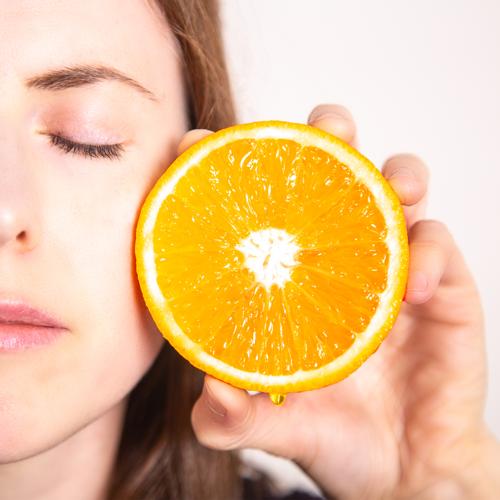Acne, rosacea, eczema, wrinkles, dry, flaky skin and sun-damage are some of our biggest struggles when it comes to our skin.
Because our skin is visible to the outside world, it can be very upsetting to those affected, who have yet to find the right solution to their problematic skin. We rely heavily on topical lotions and super-formulation serums to get that youthful glow but we’re likely to see limited results.
Our approach is different. What if we were to tell you that what you put in your body is more important for skin health than what you put on your body?
A lot of skin conditions like acne, psoriasis and eczema, among others, begin in the gut. Which is why, when addressing skin health, we first need to look at the health of our gut. Recent research has shown a bi-directional connection between the gut and our skin, and numerous studies link our gastrointestinal (GI) health to skin health.
What does our skin do?
The skin is the largest organ in the body and its purpose it to;
- Protect the body
- Regulate temperature
- Give us sensations by transmitting information to the brain about the surroundings
- Excrete certain waste materials from the body
Nutrients and foods that better affect our skin
Our skin is a complex organ with a high rate of turnover, so it is therefore dependent on a consistent intake of diverse nutrients, some of which include the following;
- Zinc – Food sources: peppers; egg yolks; ginger; herrings; seafood; wholegrains
- Essential Fatty Acids – Food sources: salmon; walnuts; avocado; sardines; chia seeds; flaxseeds; mackerel; anchovies
- Selenium – Food sources: broccoli; brazil nuts; celery; cashews; oysters; organ meats; onions; turnip; eggs
- Beta-Carotene (is part of a large family of compounds known as carotenoids) – Food sources: Broccoli; kale; carrots; yellow and greenish yellow vegetables; papaya; red peppers; sweet potatoes; tomatoes; avocado
- Vitamin C – Food sources: broccoli; Brussel sprouts; citrus fruits; guava; parsley; cabbage; pineapple; strawberries; sweet potatoes; tomatoes; berries
- Vitamin E – Food sources: almonds; hazelnuts; wheat germ; egg yolk; apricot oil; avocado
“Everyone understands the desire for healthy skin but do we really know how to achieve it?”
Below is a list of strategies you can use to help achieve that elusive ‘healthy, glowing skin’ from the inside out.
- Remove sugar and processed foods
- Look at the health of your gut and work with a nutritionist to fix any imbalances
- Eat a diet rich in omega-3’s
- ‘Eat the rainbow’ – get as much colourful fruits and vegetables into your diet as you can. The more colour, the more nutrition and the better your skin health.
- Exercise and sweat on a regular basis
- Sleep, sleep, sleep
- Reduce stress
- Hydrate your skin – drink up to 2litres of water each day
- Reduce your use of chemical cosmetics and opt for more natural products.


